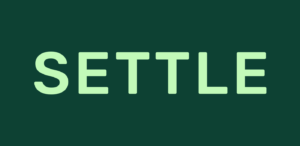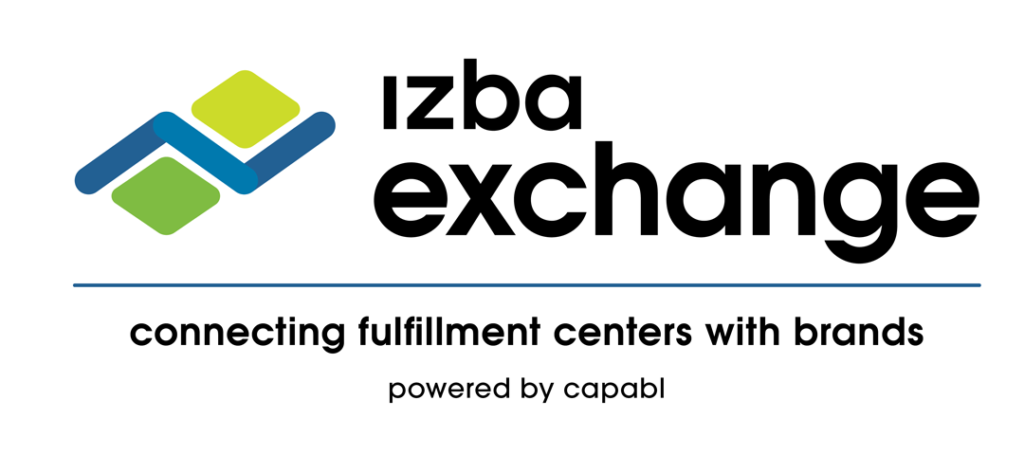What is Settle?
CEO and founder of Settle, Alek Koenig, describes Settle as, “A cash flow management platform for brands that offers accounts payable software functionalities along with financing options to help businesses regulate their cash flow cycle.”
Developed for brands that struggle with negative cash flow cycles, Settle is a two-in-one financing solution that doesn’t just solve your financial problems, but also helps you manage your finances as well.
How Does it Work?
Explaining the idea behind the company, Alek says, “What we identified was that every brand is always having cash flow issues,” pointing out the struggle that most brands have with large purchase orders that leave them in a negative cash flow cycle.
“We’re always buying inventory before receiving any revenue from it. We thought to ourselves, ‘What if we built this accounts payable platform and layered on financing that’s fine-tuned to these specific orders?’”
And thus, Settle was founded and as a financing company that specializes in helping companies manage finances, it has appealed to a remarkably large audience that it is looking forward to working with.
When asked about how their service works, Alek tells us, “We have this product called Extended Payment Terms where we’ll effectively pay the vendor directly with Settle’s money and the brand could pay us back 30-150 days later depending upon their cash conversion cycle.”
To understand, we need to consider companies that may be working with retailers like Walmart. The way retail and large purchase orders work is that when retailers make their orders, they offer to pay the money for the inventory they purchase in 60-90 days.
Whereas, they need to line their shelves with inventory for at least 1-2 weeks at any given time. This means that while you’re paying for the inventory that you’re supplying to them right now, you can’t expect to receive your revenue prior to the time determined by the payment terms.
During that time, you find yourself in a negative cash flow cycle. To avoid this, there are only two options: you either negotiate similar or extended payment terms with your manufacturers and suppliers by offering them higher rates, or you obtain financing.
That’s where Settle comes in. Rather than having to negotiate with other parties, you can have Settle verify your purchase orders and finance your negative cash flow cycles so that you have more cash to focus on more orders.
Features of Settle
Settle offers a wide array of features and functionalities that can help streamline financial management. For brands, Settle offers financing options as well as a platform to automate approval flows, simplify bill workflow and smooth out cash flow from an elegant interface.
Combining the different technologies offered in the market to make a complete solution, Settle distinguishes itself with its transparency and helping brands as well as vendors with:
- Same-Day ACH
- Paper Checks
- Payment Status Tracking
- Domestic Wires
- International Wires
- Invoice Text Recognition
- Customizing Payment Approval Rules
- Streamlining Invoice Request Approval
- FX Payments
- Cashflow Graphs
- Managing User Permissions and more!
In addition to the accounts payable software, Settle specializes in helping businesses scale their operations by utilizing transparent financing options available at competitive rates. Two of Settle’s Founder Friendly financing options include:
- Extended Payment Terms for Inventory
- Marketing Card
Should Startups Opt for Financing?

When speaking with Aaron Alpeter, CEO and founder of Izba, Alek described his experience with educating startups regarding debt financing and how many are apprehensive to even approach the subject.
Recognizing the risk everyone associated with debt, Alek said, “We definitely understand that if you use it improperly, it could really take down your business but if you use it properly, you can really scale your business in a much more efficient way.”
To explain, Alek said, “If you’re scaling, it makes a lot more sense to go for financing because then, you could effectively use that debt instead of your own equity for inventory or marketing purposes. You’ll only be fast-tracking the revenue you’re supposed to get.”
Elaborating on his point, Alek continues, “If debt allows you to buy more at one time, this can allow you to negotiate better rates and terms with your suppliers. So, the debt might end up paying for itself while allowing you to scale beyond your current stage.”
When Should a Startup Not Use Financing?
When asked about the things that startups shouldn’t use debt financing for, Alek said, “You should never use it for R&D purposes or employees where you either don’t know what the return is or if the return might take too long for what the terms of the debt are.”
Summarizing it with conciseness, Alek states, “Companies should never use financing for exploration and experimentation.”
This means financing shouldn’t be used for scenarios where you’re testing out new infrastructures or marketing endeavors that aren’t likely to return as much revenue because ultimately, your debt isn’t giving you anything more than what you’re going to make. It’s just accelerating the process.
As Alek puts it, “We’re the most honest providers out there. If someone doesn’t want to work with us, that’s completely fine too. We just want to give them the information to make their own decisions which is also one of the reasons why we don’t have any long-term contracts.”
As Alek states, Settle ensures that all its clients know that they possess the freedom to leave at any point. “We make sure we’re being very consultative to them and telling them about the different options at their disposal along with how we’re different from other options in the market.”
Another instance when debt isn’t advised is if you’re close to folding. It’s one thing to be in a negative cash flow cycle, and another matter entirely if you’re not making ROI. If you’re having losses and you opt for financing, you’re probably not going to get any lender’s approval.
Even if you do, you’ll only be scaling the size of your loss. In such instances, it’s not your business equity or capital that’s lacking but it’s something else entirely.
Talking about such situations, Alek clarifies, “Some people come in and look at us as a bridge extension. That’s not what we are. If you’re going to fold without us in the next few months, we can’t take that risk.”
So, what exactly does a company need to qualify for Settle financing?
How Does Settle Evaluate Companies for Financing?
Settle, like all financing companies, have to be particular about the businesses they work with and it’s only after careful evaluations and background checks that companies can get themselves financed.
“We realize everyone’s a little bit different which is why we don’t run everyone through the same algorithm of evaluation, especially when we’re lending larger sums of money.”
“We also get clients who are well-capitalized, and we immediately tell them they don’t need us because their capital is going to return in the next few months.”
Settle prioritizes providing its clients the runway they need to expand their operations and to do that, they need to verify that you’re only stuck because of low equity and not because you have an inefficient business model.
So, ideally, a company that has started selling into B2B channels but struggles to overcome a negative cash flow cycle due to unfavorable payment terms would be a good candidate to apply for Settle financing.
“If a brand has catch-all issues, usually the supplier does as well. They always want to get paid sooner. So, that’s an area we’re investing in a lot right now.”
But as Alek said, every company gets its own evaluations and there are no defined criteria for any industry.
Expanding upon the point, Alek says, “If you have good margins, good returns on your ad spend, then why not help you speed up that timeline?”
As for the accounts payable software, it’s available for everyone with soon-to-be-added, accounts receivable functionalities as well.
Common Mistakes People Make in Supply Chain or Debt Financing
Discussing the most common mistakes that companies make when applying for supply chain financing or debt financing, Alek says:
“You can find companies being a little bit too aggressive, especially on the projections front. They’ll project 3x, 5x or even 10x growth in a year and then for the next year, they’d do the same.”
The problem with this, as Alek puts it, is that “Once you reach that first hurdle, the second hurdle is much harder both organizationally and from a sales perspective. Being unrealistic proves risky and makes it difficult to predict something substantial.”
Looking for Financing?
If you’re a business trying to get out of a negative cash flow cycle or are seeking general consultation, contact supply chain consultants at Izba if you’re unsure of whether you should opt for financing or get in touch with Settle if you’re looking for the best financing options!





